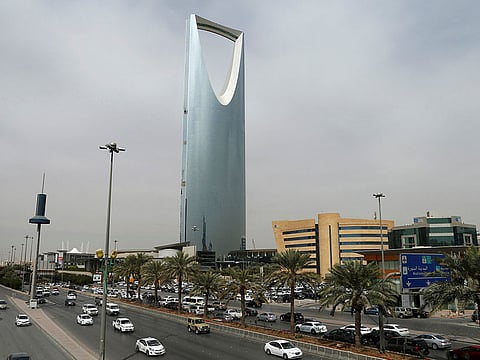Saudi Arabia bans imports from 16 auto companies
Temporary block due to failure to comply with new fuel standards

Also In This Package
Abu Dhabi: The Saudi General Ports Authority has temporarily banned imports from 16 car companies for failing to submit their supply plan and commitment to comply with new fuel standards within the specified time frame, local media reported.
The ban came in a recent circular by the deputy chairman of the authority for policies and legislation, Abdul Rahman bin Abdullah Al Ghamdi, based on Saudi Corporate Average Fuel Efficiency standard (CAFE), enacted on January 1, 2016.
Similarly to the USA CAFE objectives, the kingdom’s approach is to reduce gasoline consumption and induce conservation and increasing efficiency of the light-duty vehicles (LDV). The proposed standard mandates require that all new and used passenger vehicles and light trucks either imported or locally manufacture should comply with new fuel standards. The law is set to be fully phased out by December 31, 2025. The Saudi Energy Efficiency Center (SEEC) and other entities including the Saudi Standards, Metrology and Quality Organisation, Saudi Customs, and Ministry of Commerce and Industry have been asked to monitor the implementation of the CAFE standards.
The purpose of the fuel standards is to commit the light-duty vehicle manufactures sell their cars in the kingdom and comply with the Saudi CAFE. This standard has a double dividends from the automobile manufacturer side its incentivise them to introduce the up-to-date efficiency technologies and cut the supply the low-efficient technologies to the Saudi market. The Saudi CAFE standard targets an improving in the overall fuel economy with an average of 4 per cent annually. This would lift up the kingdom’s fuel economy LDVs from its current level of 12km per liter to 19km per liter by 2025.
Saudi Arabia’s car imports witnessed an increase during 2019, with a value of eight billion riyals compared to 2018, reaching 628,135 cars worth 45 billion riyals, compared to 482,948 cars worth 37 billion riyals in 2018, according to the General Customs Authority .
In 2018, car imports dropped by more than a fifth to 440,992, compared to 554,581 for the previous year.
Car imports in 2018 were the lowest in 14 years, while it was the third consecutive year that the industry had witnessed a drop.
Sign up for the Daily Briefing
Get the latest news and updates straight to your inbox








